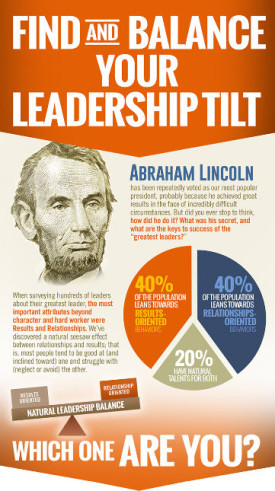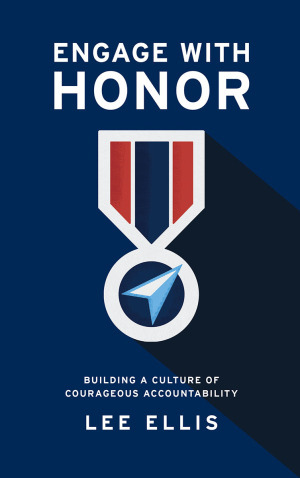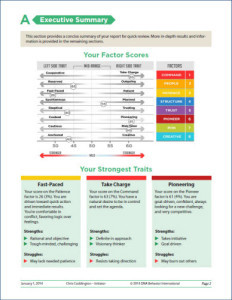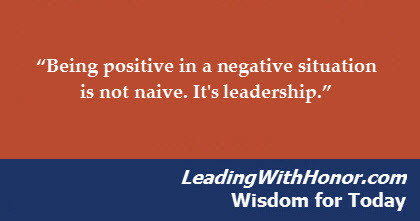Lee Ellis's Blog, page 276
April 20, 2016
3 Courageous Ways to Conquer Negative Leadership Behaviors
By Lee Ellis
Climbing Mt Everest. Saving a family from a burning building. An American soldier defending freedom in remote parts of world. These scenarios are clear acts of honor and courage. So for the rest of us, does the concept of courage seem less important? It shouldn’t because every day small acts of courage by honorable leaders make significant impacts in our lives and culture.
Today’s Culture of Honor
If you’re like me, it’s sobering to witness the lack of honor in leaders across every spectrum of life. I’m talking about violations of basic principles of integrity and respect for duty that we see played out on a daily basis in the news. What makes this so scary is that most human beings will tell you that they have good character and high integrity. Even those individuals and leaders that get outfitted in an orange jumpsuit still rationalize that they have done nothing wrong.
So if we all steadfastly assume we have great character, what’s the missing link? I like to think of honor as a three legged stool that is supported by –
Character
Courage
Commitment
I’ll say it another way –
“Be Courageous. Lean into the pain of your doubts and fears to do what you know is right, even when it feels unnatural or uncomfortable.” [Tweet This]
The Key to Courage
If you examine examples of dishonorable behavior, courage is likely what is lacking. It’s not that people don’t know what to do—it’s that they don’t have the courage that it takes to make the honorable choice and act on it. And unfortunately, you or someone on your team is more naturally inclined to these destructive behaviors. [Tweet This] That’s why we routinely use behavioral assessments like Leadership Behavior DNA to learn the dynamics of each team member and how they can help balance each other.
Consider these words of famous thought leaders of the past –
“Courage is rightly esteemed the first of human qualities…because it is the quality which guarantees all others.” Winston Churchill
“Courage is not simply one of the virtues, but the form of every virtue at the testing point. ” C.S. Lewis
Growing in courage is at the core of any personal or leadership development plan. Otherwise, fear will take us out of the battle and lead us to abandon our good intentions. This concept isn’t about attaining perfection—it’s about adopting courage and honor as the guiding force for our daily decision-making.
Choosing Courage Instead of Fear
Though the issues of dishonor that we see in our culture aren’t about torture, pain or physical suffering, they are founded in fear. Three common leadership behaviors that fear-based leaders avoid are –
Confronting poor attitudes and behavior.
Giving positive, encouraging feedback.
Standing up for what’s right when others are laying low.
For many leaders—even experienced leaders—these are painful ventures to be avoided at all cost. Cowardly leadership responses undermine the organization and lead to many other problems of accountability, execution, and morale.
We all have our fear points and times of weakness, so here are three things we can do to be more courageous –
Become more aware of your doubts and fears. Stop and reflect on the areas where you’re putting off making a decision or taking action. More than likely you need courage to move ahead.
Sort it out and make a plan. If you don’t have clarity, check in with a teammate or someone you trust to get their perspective of the situation. They don’t have the same emotional investment or concerns you have, and they may be able to encourage you in your next steps.
Lean into the pain of your doubts and fears to do what you know is right. You can’t go wrong doing right. Just start moving ahead with your plan.
In hindsight, it’s amazing how often lies about ourselves and the situation are the source of our doubts and fears. Courage helps us disarm lies, discover truth, and ultimately deliver us more freedom.
Remember to be courageous. And as one of my POW buddies wisely adds, “Courage is contagious.”
[Tweet This Article]
LE
Team Development and Leadership Behavior DNA
95% of our clients say that they have gotten tremendous value in team development training using Leadership Behavior DNA. This unique behavioral tool determines natural leadership behaviors so that teams can easily pinpoint strengths and struggles in team cohesiveness.
Learn More or Email Us for more information on how to train your team, Download a free report.


April 19, 2016
Fill in the blank – “The best, optimum amount of time that most work meetings should last is _________________.”
Fill in the blank – “The best, optimum amount of time that most work meetings should last is _________________.”
Please share your comments in this post – thank you!


April 18, 2016
Find and Balance Your Leadership Tilt to Achieve Your Goals
 Where does your personality tilt when communicating with others? And which way is the best way in life and leadership?
Where does your personality tilt when communicating with others? And which way is the best way in life and leadership?
Check out this infographic from Leading with Honor, and share your comments – thank you!


April 17, 2016
On This Day in Leadership History, April 17, 2016
On this day in leadership history in 1970, Apollo 13 returned to Earth safely after an on-board accident with an oxygen tank.
What’s the leadership lesson? Be prepared as much as possible in your day-to-day leadership, and surround yourself with a team that work with excellence even during a crisis.
Apollo 13 – Wikipedia


April 16, 2016
Leadership Photo of the Week
April 15, 2016
Leading with Honor Wisdom for Today, April 15, 2016
April 14, 2016
3 Quick Tips to Make Honorable Leadership Choices
So what should you and I do about this innate problem of living honorably? How can we make honorable choices and decisions? Here are 3 tips from Lee Ellis –
1. Admit your vulnerability.
Accept the reality that you are capable of dis-honorable choices and behaviors. Admitting the problem of being human is the first step of prevention.
2. Be alert and self-monitor.
Pay attention so that you will recognize when you are starting to drift off course from your values. When you are on guard, you can correct back quickly and those early corrections are much easier to make.
3. Engage a support team to help.
The wisdom of justice is Nemo judex in causa sua – “no person can [objectively] be his own judge”. That’s why you need confidants who can help you be accountable. Without others to speak into our lives, we won’t notice the drift from the true north of our values. Others can help us realign our compass and avoid drift or make early corrections back to course.
From personal experience, I can tell you that it’s a daily battle to live and lead with honor. And if you ever assume you’ve mastered this issue, then you’ve just become very vulnerable. Read the entire article below, and please share your comments –
Read the entire article on this topic, and please share your comments below – thank you!


April 13, 2016
Funny Video of the Extrovert Deer and the Introvert Dog
This very funny video shows a deer and a dog playing in a creek, but more importantly it’s a great illustration of the natural behaviors of an outgoing extrovert and a reserved introvert. Amazing – check it out!


April 12, 2016
RetroWeekend is Coming April 29-30 – Learn More and Register
RetroWeekend is coming up on Apr 29-30, and Lee would like you to join him for a fun weekend of music, food, 5k run, and special speakers along with him and others. Learn more below register this week!


April 11, 2016
Send Lee Your Accountability Question for His New Book!

Coming September 2016 – The Latest Release from Lee Ellis
Accountability questions keep coming in for Lee to answer in his upcoming release, Engage with Honor. Here’s one – Question: “What’s the difference between negative accountability and positive accountability?”
Lee’s Answer: “For a lot of people, the word accountability has negative connotation. But in reality, courageous accountability is simply making sure that responsibilities are carried out. We all need that follow-through from someone else to ensure that responsibilities and promises are being fulfilled, but we should make it a positive process. The mindset of accountability is that most of the people on your team will succeed if the leader does their job the right way.
But first, there is a personal responsibility to ensure that the leader is doing things the right way. And when accountability is done in a positive way, most of the time it’s going to lead to celebration rather than confrontation, morale and work standards will increase, and profits will increase. And, the great thing about doing accountability in a courageous, positive way is that it will still weed out the individual team members who aren’t performing or have negative behaviors that compromise team success.”
Please post it here, and we may include in the book – thank you!
















